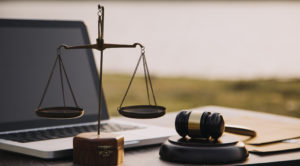
In a criminal or civil trial, a hung jury occurs when the panel of jurors cannot agree on the verdict. For jury verdicts, the majority of jurisdictions demand unanimity. This indicates that for a trial to be concluded, all jurors must reach a verdict of guilt or innocence.
Any of the following outcomes are possible in the event of a hung jury: the judge may order a longer period of jury deliberation, declare a mistrial, order a new trial or dismissal of the case, or order the prosecution to negotiate a plea deal with the defendant.
Keep reading to get answers to some of the most common questions about hung juries. Then contact Law Office of Michael L. Fell at (949) 585-9055 if you require a free legal consultation with a criminal defense attorney.
What exactly is a hung jury?
A jury that is evenly divided in opinion and unable to decide whether to find a defendant guilty or not is referred to in law as a "hung jury." Both criminal and civil cases have the potential to have hung juries. 1
It should be noted that the majority of jurisdictions demand that all jurors in a case must reach a consensus regarding whether the defendant is guilty or innocent. In other words, the jury must reach a consensus about guilt or innocence. A hung jury occurs when there is no unanimity.
What transpires if the jury is deadlocked?
Following a hung jury in a court case, the following things could occur. The prosecution may opt to retry the case, the prosecution may decide to dismiss the case or enter into a plea agreement with the defendant, or the court may decide to declare a mistrial. The judge may also arrange a hearing when the jurors can examine the parties involved.
The prosecution has the option to retry the case or request a new trial if the judge does declare a mistrial or retrial because of a deadlocked jury. However, there is no requirement for the prosecution to do this. The prosecution can opt not to retry the case if, for instance, the jury in the hung jury was deadlocked at 11 votes in favor of acquittal and just one juror would have found the accused guilty.
Is retrying a case after a mistrial considered double jeopardy?
No, not always. The Fifth Amendment of the US Constitution includes a provision known as the Double Jeopardy Clause. When a jury is deadlocked and a case is retried by the prosecutor, the Clause typically does not apply. A case may be retried if there was a "legal necessity" that demanded the release of the jury. The double jeopardy defense is not applicable under these circumstances.
A legal requirement could result from a juror's illness or other infirmity, a juror's absence, a hung jury, the defendant's incapacity, the defense attorney's absence, or the judge's absence.
What is misbehavior by a jury?
Any behavior that clashes with the judge's instructions on how jurors should carry out their duty is referred to as jury misconduct. A jury is one person who may engage in this behavior, but not only them: discussing the case with individuals who are not on the same jury, refusal to deliberate, independent (and unauthorized) investigation into the case's facts, refusal to speak to a fellow juror about the case, independent (and purposeful concealment of) personal beliefs and/or experiences that might sway impartial deliberations.
The court has a number of choices if they find that one or more jurors engaged in improper behavior and that this improper behavior interfered with the defendant's right to a fair trial.
The judge could admonish the jury for its misconduct, discharge the offending juror (and replace him/her with an alternate juror, or, if no alternate juror is available, continue with an 11-member jury if the parties agree to doing so), discharge the entire jury panel, or declare a mistrial (and the judge can then choose to either dismiss the charge(s) or order a new trial of the case).
As you can see, this can be a complicated situation. If you are facing criminal charges, you need an attorney who can help you get through the process smoothly. That attorney is Law Office of Michael L. Fell. Call now at (949) 585-9055 to request a free legal consultation.

